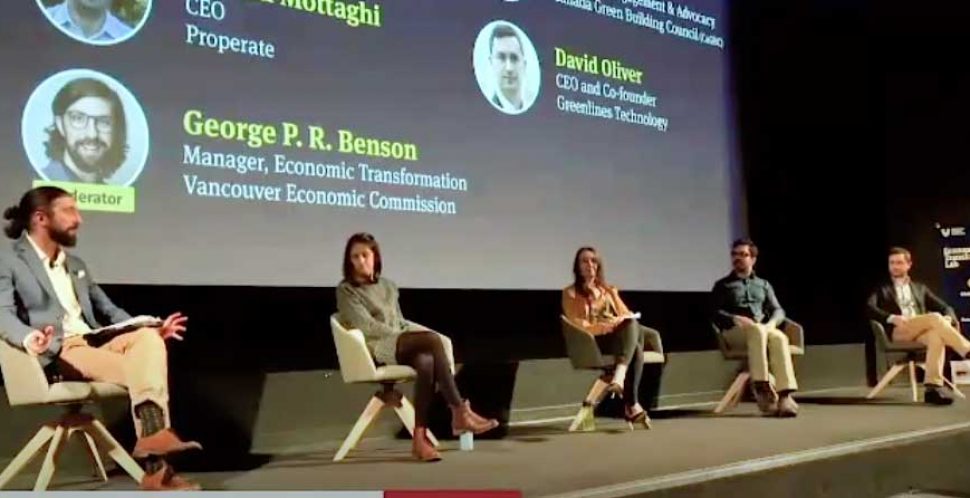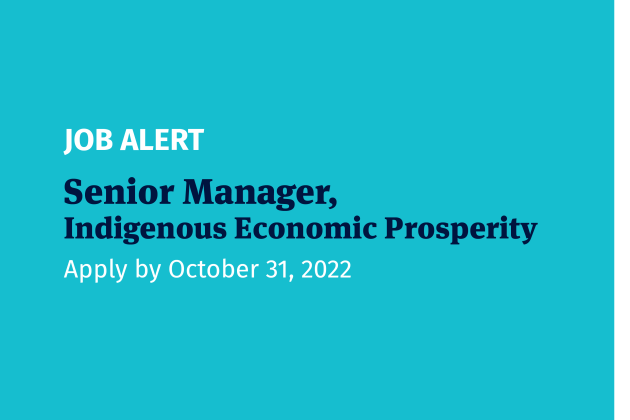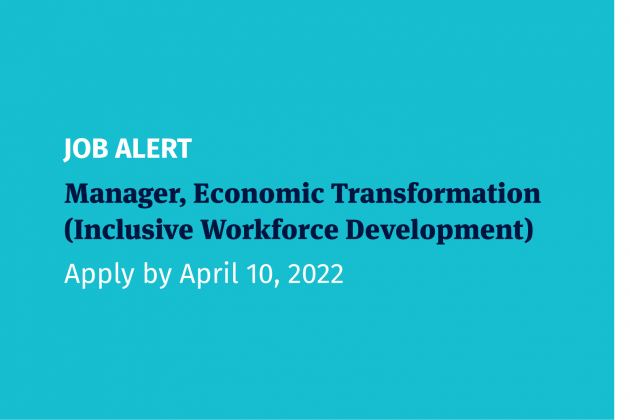The following themes emerged in this future-proofing Vancouver event:
- The necessity of iteration. There is no one solution; just because one idea did not work out quite as hoped doesn’t mean the concept is not worth pursuing or improving.
- Not everyone will agree on the cause of the problem, let alone the solution. Sometimes engagement and education can fix a failed proposal. Sometimes it will not.
- Effective climate action requires the public sector, the private sector, and individual champions all working in tandem. Each are crucial components of the solution, and all must do their best to break free of past mistrust.
- Planning can be seen as being a double-edged tool, but it is extremely effective when applied properly. Focus on translating ideas into action and building interest out of engagement.
- Although many plans aim for points decades in the future, we need all the time we have. It is the work done today, tomorrow, and the day after that makes for effective action, because actions done early on will compound. It is futile to defer all action to the last minute of the last decade.
- Focus on translating ideas into action and building interest out of engagement. Ideas that are complex, impenetrable, or inaccessible to the audiences that can most make an impact will change no minds and move no dials.
On November 17, 2021, the Vancouver Economic Commission (VEC) and Simon Fraser University’s Beedie School of Business (SFU Beedie), co-hosted a hybrid in-person and online conversation around climate action with a panel of relevant experts. The four speakers – minds from local business, trade associations and academia – engaged in lively debate about some of the most transformative ideas for the climate emergency.
When we’re in this mode of conversation about climate change … we tend to talk about these long-term objectives: net zero by 2050, half our emissions by 2030, 100% renewable by 2030. But the things that matter are the things we do today, and tomorrow, and the next day.
“This is the world we live in with less than 1.5 degrees of warming,” says panel moderator George Benson, referring to the catastrophic mudslides and flooding that had occurred just days before the event. “We are still on track for 2 degrees. If we keep talking about 2050, and pretend we can act in 2049, and hand in our paper at the last minute, so to speak, we are going to be in a situation where we don’t have the resources to fully respond to that challenge, and we are going to have left many people behind along the way.”
“But we are not in 2050; we are in 2021. And we can achieve many things here.”
Panel insights
Each panelist delved into insights specific to their fields of expertise and interest. The following are high-level summaries of each individual’s opening comments. For detailed examples, and to follow the flow of conversation, be sure to watch the video.

Embrace the cycle of try, reflect, revise, and try again
Andreanne Doyon – Assistant Professor, Resource and Environmental Planning Program, Simon Fraser University
The magnitude of the climate emergency means that everything – even the aspects of life we take for granted – must be reconsidered. Further, it’s imperative that people not only have courage to try for difficult tasks, but that they accept less-than-ideal outcomes – or outright failure – while pursuing new ideas on climate action. This could be policies, business decisions, or personal choices.
However, there are a few foreseeable tensions moving forward: one will be how to assess the effectiveness of individual actions, versus how these translate into or even match up against the kind of systemic changes that need to take place as a society.
As a maker of policy and regulation, the City of Vancouver cannot do it alone. Individual residents, businesses, and entire industries and other orders of government need to work in tandem to achieve goals. Public engagement and education will be helpful to convert people to the cause. The key is to commit to the bulk of the work well ahead of the deadline and to encourage action at all levels and in all facets of life.

Work at whatever level you feel will bring about the biggest change
Akua Schatz – Vice President, Marketing Engagement & Advocacy, Canada Green Building Council
Decarbonization in B.C. generally means electrification and moving away from natural gas to heat buildings and power vehicles. For institutions that train designers, architects and the trades, it’s a big step to take to ensure they are getting the low-carbon jobs they need.
Buildings are responsible for about 50% of emissions in most Canadian cities. Moreover, a select few entities own about 80% of the buildings in Canada, so it’s crucial to get those large-portfolio property owners on board. For this reason, CaGBC works a lot with larger commercial and institutional homeowners as they approach the issue of decarbonizing their building stock.
Thankfully, the pressure is now on to disclose how you are dealing with emissions reductions to investors and lenders. ESG (environmental, social and governance) disclosures have been catapulted from something that’s nice to have to something that’s an essential piece of the puzzle. Many larger building owners are seeing the climate imperative as necessary, with the alternative a risk to their business. However, policy and regulatory changes in BC, such as CleanBC, are required.
That’s not to say that climate action in buildings is restricted to the moneyed and the large portfolio owners. We, as individuals, can collectively ask and push for energy-efficient products, on-site renewables while advocating for and challenging building investments made in the places where we work, learn, and live.

Prepare for market trends by making the value-add transparent
Arman Mottaghi – CEO, Properate
“There is one right way of building buildings, and many wrong ways. If you look at that one right way, equity, resilience, sustainability will all come together.”
Done right, planning can translate policy into market demand, and this is crucial to effectively prepare for industry transitions and accounting for projected shortfalls in resources, products, and expertise. For example:
- VEC published a study on upcoming market trends in the buildings industry with numerous actionable insights: for instance, triple-glazed windows may seem like the future today, but they will soon be the norm, as they are in Europe.
- We have a limited number of workers in construction. It would take a fixed timeframe to get a carpenter trained up and put into the workforce. Hopefully, this will grow organically over time, but there’s an imperative to plan for that demand and get it right from the beginning.
If building experts can effectively engage the interests of the public, private interests, and investors, there is a greater chance of allocating the resources we need to build affordable, sustainable and equitable homes. For this reason, we need to focus on clearly, transparently translating the information most necessary to convert people committed to the cause into buyers – to equip them with the information they need and that they ask for. When we are able to effectively translate the cost savings and overall value add of practical solutions, we will have won half the battle. An example could be explaining the benefits of heat pumps, and their benefits to home health and emissions over things like nests for smart homes.

Carbon markets provide tools to consolidate and scale individual action
David Oliver – CEO & Co-founder, Greenlines Technology
Carbon markets are becoming more important every day as a scalable tool to help support the environment and economies worldwide. However, their biggest obstacle is their lack of relevance in people’s daily lives, which is tied to the minimal transparency available in carbon market dealings. This must change.
Ten years ago, when BC first launched the BC Offsets Program, the province became a global leader of carbon markets. Since then, however, BC has not kept up with the rate of innovation or seized the opportunity to adapt its original approach. And there is opportunity. Canadians produce approximately 16 tonnes of GHGs per capita annually. Contrast this with Spain, whose residents account for an annual four tonnes per capita.
Whether we like it or not, the best way to change behaviour is money or financial incentives. Whether this takes the form of penalties or rewards for good behaviour, carbon markets provide climate solutions that are easily scalable from systems to the individual. With so few opportunities for quantifiable individual action, we need to give everyone who wants to act a choice and a tool – and that tool could be financial instruments that feed into carbon markets.
Signup for future events
Make sure you don’t miss the next event in the series by signing up for email updates.
Sign up



